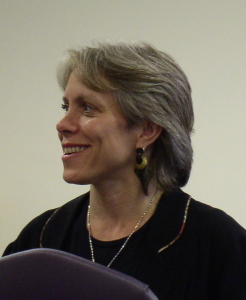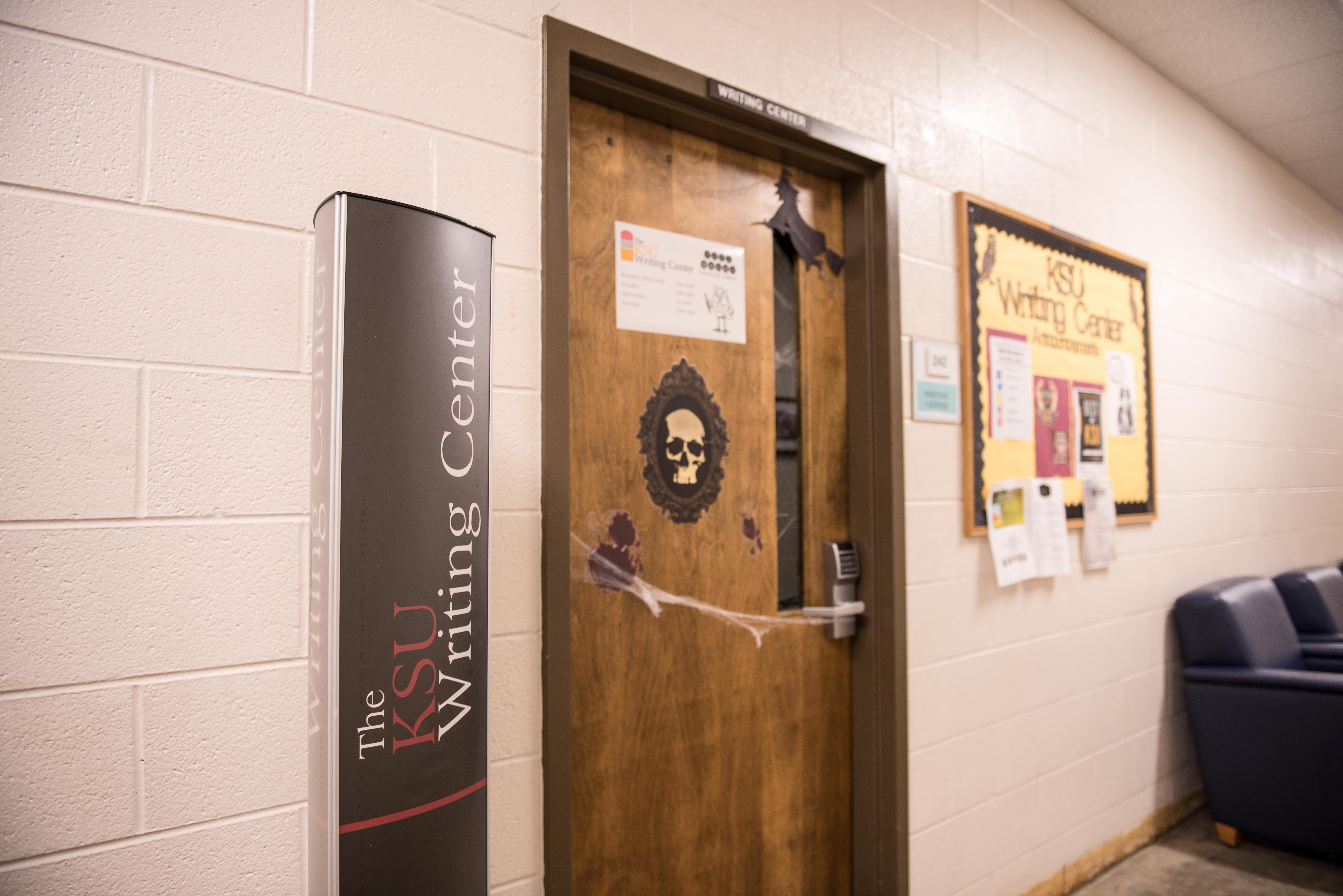
Jessica Fisher, Staff Writer
Massachusetts activist and educator Robyn Ochs came to Kennesaw State last Wednesday to discuss bisexual visibility as part of the inaugural Breaking the Silence event.
Breaking the Silence as a series is co-hosted by the Kennesaw Pride Alliance and the GLBTIQ Resource Center aimed at addressing conversations that often get less attention than others, and Jessica Duvall, Assistant Director of the GLBTIQ Resource Center, hopes that it is a series that will continue on. Bisexuality as a part of the LGBT spectrum, and bisexuals as a community within the larger LGBT community, often gets left behind, erased, stereotyped and so generally is misunderstood.
Ochs, a bisexual woman herself, spent an hour-and-a-half talking to KSU students about her personal life, coming to the realization that she was bisexual, and the work she has done and the realizations she has come to being an activist and an educator on the subjects of bisexuality and self-care in the activist community.
Duvall felt very positively about how the event went, “I feel this year’s foray into a guest lecture program was hugely successful. We had excellent attendance and extremely positive feedback from those who participated. Robyn Ochs provided an engaging and insightful lecture that left attenders with a broader understanding of the experiences of non-monosexual identified folks.”
That was an important point of Ochs’ talk as well – non-monosexuals face discrimination inside and outside of the LGBT community that needs to be addressed. Ochs pointed out that what she was talking about was not just about the word ‘bisexual’, it was about a region of identity space. Within that identity space include such sexual orientations as bisexual, pansexual, polysexual, heteroflexible, homoflexible, queer, and omnisexual.
Of all of these identities, how is anyone supposed to know which one others identify as? Well, that is totally up to the individual.
Ochs was very light-hearted about her own personal history, telling the audience that she did not make the logical leap to understand that if a man could be gay, then a woman could be gay.
“I didn’t know how to go from knowing to being,” Ochs said about finally realizing she was bisexual.
When Ochs encouraged audience members to describe words they’d heard in reference to bisexual folks, the list included words such as: Greedy, promiscuous, not able to commit, on the way to guy, phase, waystation and confused.
With that in mind Ochs said something that everyone should know is true, “It takes a great deal of courage to come out publicly as bisexual.”
She went on to say that she, “… didn’t realize how much silence cost me.”
As the talk went on Ochs pointed that if she was walking down the street with her arm around someone the rest of the world sees as a man, she would be read as straight. If she walked down the street with her arm around someone the rest of the world sees a woman, she would be read as a lesbian. She asked the audience, “What would I have to do in public for you to read me as bisexual?”
Some joked that she could walk down the street with one arm around a woman and one arm around a man, but no one had a concrete answer.
After that short audience exercise Ochs talked about how LGB folks are reduced to the sex they are having, while transgender folks are reduced to their genitals, and how both of these things need to end.
Near the end of the talk Ochs wanted to drive one point home, that folks have trouble seeing everything that is non-binary, and that as a society we need to address this.
As for the future of the series, Duvall had this to say, “We are looking at a variety of topics to cover over the course of the next couple of years. Some proposed topics include transgender inclusion and visibility, Queer People of Color perspectives, and Interpersonal Violence with LGBTQ communities. The overall purpose is to explore topics within the LGBTQ community that are often overlooked and/or conflicts with the community.”
For those who were not able to attend the event, Duvall hopes that they may take away from this article one thing and that is, “That the LGBTQ communities are expansive and diverse and cannot be painted with a broad bush. It is important to take steps to increase our understanding of ourselves and others so that we can improve as allies for ourselves and those around us.”


